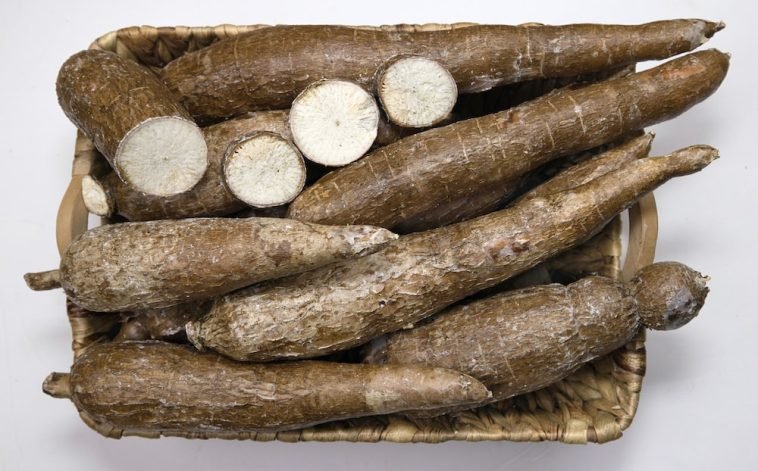Introduction.
Cassava farming is a big deal in Nigeria. Why? Because cassava is one of the most important crops in the country.
It’s a staple food for millions of people and is used to make popular foods like garri, fufu, and tapioca. Beyond that, it’s also a raw material for industrial products like ethanol, starch, and animal feed.
With Nigeria being the largest producer of cassava globally, it’s clear there’s plenty of potential in this business.
Starting a cassava farm can be a smart way to tap into this demand, but like any business, it requires proper planning and effort.
Let me guide you through everything you need to know about starting a successful cassava farm in Nigeria.
Why Cassava Farming Is a Good Business in Nigeria
- High Demand: Cassava is a staple food in nearly every household in Nigeria. The market for cassava-based products is enormous, both locally and internationally.
- Resilient Crop: Cassava thrives in Nigeria’s climate and can grow in various soil types. It’s also drought-tolerant, making it less risky compared to some other crops.
- Government Support: The Nigerian government encourages cassava production through initiatives like subsidies, improved seed varieties, and funding for farmers.
- Versatility: Beyond food, cassava is used in industries like pharmaceuticals, textiles, and biofuels. This opens doors to diverse markets.
How Do I Start a Cassava Farm Business?
1. Learn the Basics
Before diving in, spend time understanding cassava farming. Research different cassava varieties, growth stages, and best practices for planting, harvesting, and processing.
Some common cassava varieties in Nigeria include TME 419, NR 8082, and TMS 30572. TME 419 is particularly popular for its high yield and resistance to diseases.
2. Get a Suitable Land
Cassava grows well in sandy-loam soil with good drainage. Aim for a plot with moderate rainfall and plenty of sunlight.
- For small-scale farming, one to two hectares of land is a good start.
- Large-scale farms may require 10 hectares or more.
3. Prepare the Land
Clear the land of weeds, stumps, and rocks. Plow and till to make the soil loose and aerated. Adding organic manure or fertilizer can improve soil fertility.
4. Choose Quality Cassava Stems
Using healthy, disease-free stems is crucial for a good yield. You can buy stems from agricultural research institutes or certified cassava stem sellers.
5. Plant Your Cassava
- Cut the stems into pieces about 20–25 cm long, each with at least 4–6 nodes.
- Plant them at an angle of 45 degrees, with one-third of the stem buried in the soil.
- Maintain a spacing of about 1 meter between plants to allow them to grow well.
6. Weeding and Fertilizing
Weeds can compete with cassava for nutrients, so regular weeding is essential. Use fertilizers rich in potassium and nitrogen to boost growth, but avoid over-application.
7. Harvesting
Cassava is ready for harvest 9–12 months after planting. Look for yellowing leaves and a firm, mature root. Harvesting can be done manually with a cutlass or hoe.
Costs of Starting a Cassava Farm
Here’s a rough breakdown of the expenses for a 1-hectare farm:
| Item | Cost (₦) |
|---|---|
| Land clearing | 30,000–50,000 |
| Cassava stems (cuttings) | 40,000–60,000 |
| Labour | 20,000–50,000 |
| Fertilizer | 20,000–30,000 |
| Other costs (tools, transport) | 15,000–25,000 |
| Total | 125,000–215,000 |
Remember, these costs vary depending on your location and scale of operations.
Challenges in Cassava Farming
- Pests and Diseases: Pests like grasshoppers and diseases like mosaic virus can affect cassava crops. Regular monitoring and pest control measures help mitigate these risks.
- Storage Issues: Cassava roots spoil quickly after harvest. Processing them into products like garri or chips can increase their shelf life.
- Market Fluctuations: Prices can vary based on supply and demand. Having diverse buyers or processing cassava into value-added products can help stabilize income.
Tips for Success
- Start Small: Begin with a manageable plot to minimize risks and learn the process.
- Connect with Other Farmers: Join farmers’ associations or cooperatives to learn and share resources.
- Explore Value Addition: Consider processing cassava into products like garri, starch, or flour to increase profitability.
- Stay Informed: Keep up with market trends, government policies, and new farming techniques.
FAQs
Q: How much profit can I make from cassava farming?
A: On average, a 1-hectare cassava farm can yield 25–30 tons of cassava. If sold at ₦25,000 per ton, you could earn around ₦625,000 to ₦750,000. Subtracting expenses, the profit could be ₦400,000–₦500,000.
Q: Where can I sell cassava?
A: You can sell to local markets, food processing companies, or exporters. Platforms like Nigeria Agribusiness Register also connect farmers with buyers.
Q: Do I need special equipment?
A: For small-scale farming, basic tools like hoes and cutlasses are enough. Large-scale farms might require mechanized tools like tractors and planters.
Q: How do I protect my cassava from pests?
A: Use resistant varieties, apply recommended pesticides, and maintain clean farm conditions.
Conclusion
Starting a cassava farm business in Nigeria is an exciting opportunity with plenty of potential. By following the steps outlined here and staying committed, you can build a thriving business that supports the economy and meets the growing demand for cassava products.
What’s your next step towards starting your cassava farm?





GIPHY App Key not set. Please check settings